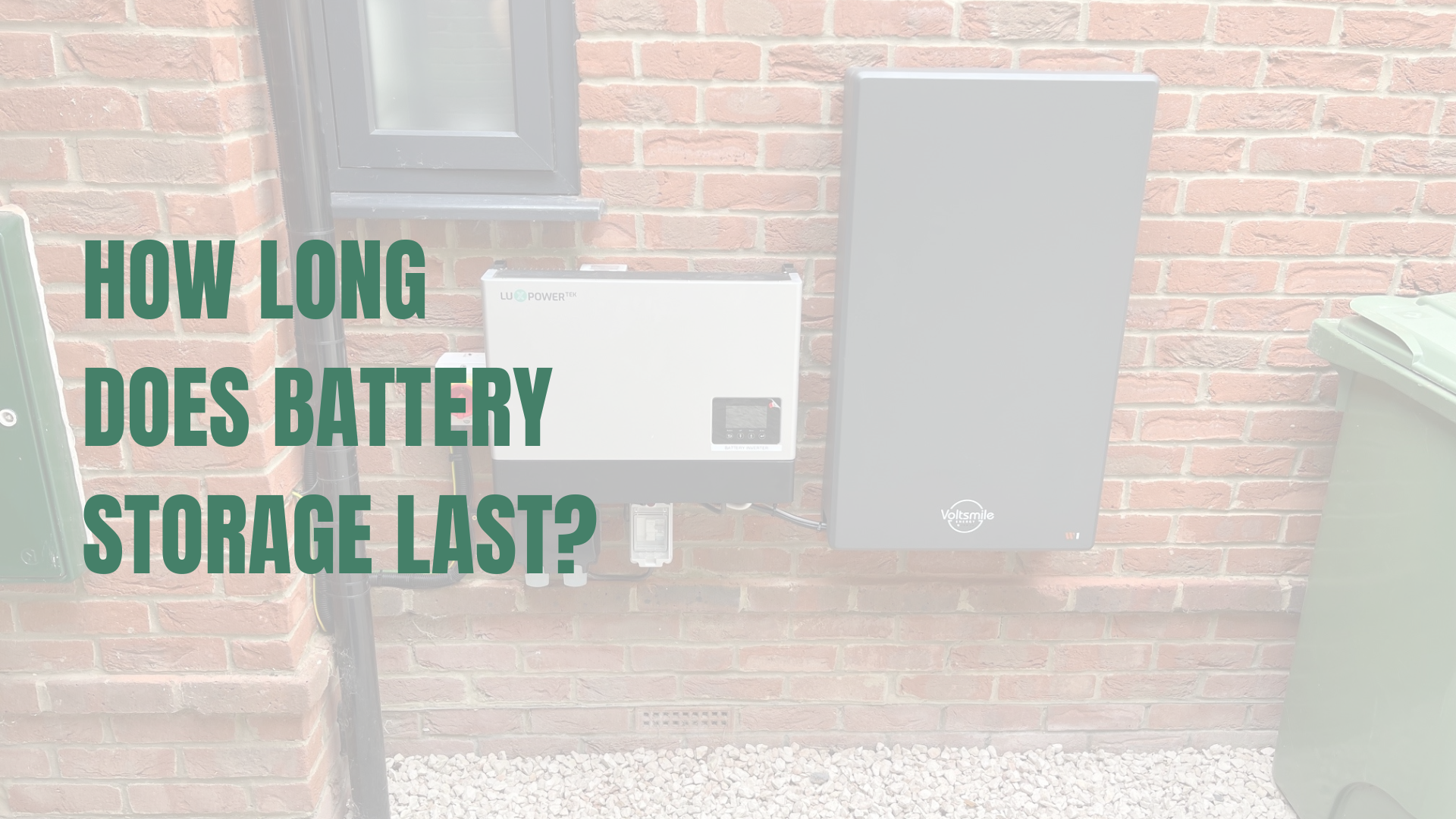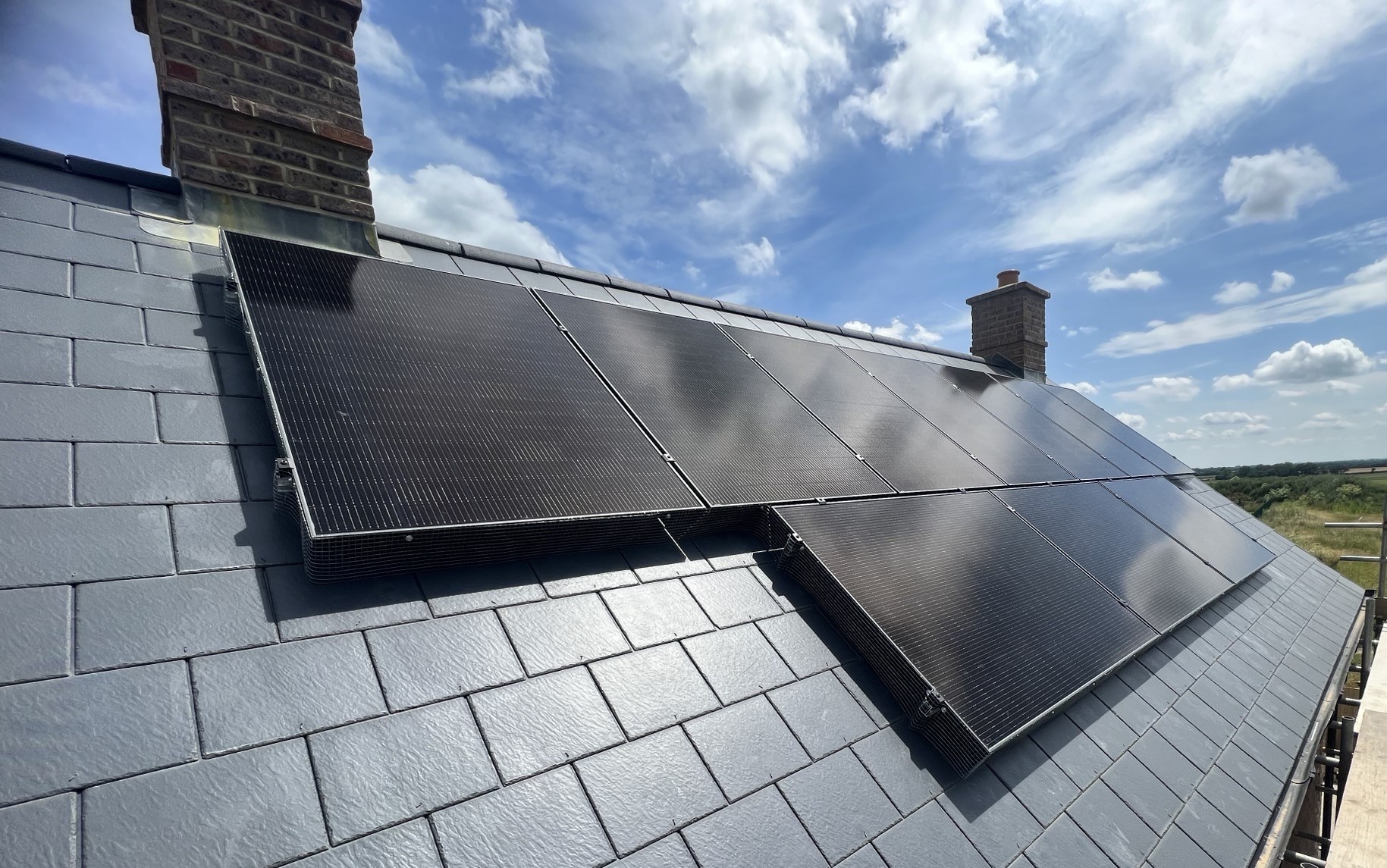While solar panels have been proven to be a long term money saving investment, can the same be said about solar battery storage? Solar panels last a minimum of 25 years, with many going on to generate electricity efficiently for up to 40 years, solar batteries however have a much shorter lifespan. Most solar batteries last between 5 and 15 years, depending on the type, usage and installation quality.
With new battery technology and professional installation, that number is increasing with modern batteries lasting up to 20 years. It’s important to note that solar batteries don’t suddenly stop working, over time their ability to store and deliver electricity gradually decreases. Most manufacturers guarantee around 60-80% capacity after 10-12 years and with careful use, many batteries last well beyond that.
Types of Solar Batteries and Their Lifespan
Different battery types offer different performance and longevity. Here’s how they compare:
Lithium Ion Batteries (10-15 years)
The most popular option in UK homes today. Lithium ion batteries are compact, efficient and require very little maintenance. Most are rated for around 6,000 cycles, roughly one full charge and discharge per day for over 10 years. At SolarTherm UK we install Voltsmile batteries which come with a 20 year extendable warranty.
Lithium Iron Phosphate (LiFePO₄) Batteries (15-20 years)
More advanced lithium technology offering greater safety and longevity. Lithium Iron Phosphate batteries are more expensive than Lithium Ion batteries. The can handle 10,000 cycles or more, making them an ideal long term battery solution.
Lead Acid Batteries (3-7 years)
An older and cheaper option, with a shorter life expectancy. They need regular maintenance and shouldn’t be discharged too deeply, making them less suited to modern solar PV systems.
Saltwater Batteries (7-10 years)
An eco-friendly alternative that is free of heavy metals and fully recyclable. Not yet common in the UK, they are growing in popularity due to their sustainability and safety.
What Affects How Long a Solar Battery Lasts?
There are a number of factors that influence the lifespan of a solar battery, beyond the type of technology used. Depth of Discharge (DoD) measures how much of a battery’s capacity can be used during each cycle. Most Lithium batteries can safely handle 80-90% DoD. Lead acid batteries need to stay above 50% DoD to prevent early wear and tear. Modern technology has found some premium batteries, like the Tesla Powerwall 3 offering 100% DoD without harming the battery.
Batteries perform best in moderate temperatures, excessive heat (above 25°C) can cut the battery’s lifespan in half and extreme cold can make charging less efficient. Proper installation with adequate insulation and ventilation is crucial to maximise the lifespan of your solar battery.
Charging or draining your battery too quickly can strain the cells. Solar batteries work best with controlled, balanced usage to maintain long term performance.
How to Make Your Battery Last Longer
You can significantly extend your batteries lifespan with a few best practices:
- Install in the right environment – choose a cool, dry, well ventilated space (like a garage or utility room). Avoid areas that are likely to overheat like loft spaces.
- Avoid full discharges – refer to the battery handbook to find the optimal depth of discharge for your battery, unless your battery supports 100% DoD, avoid full discharges.
- Maintain regularly – clean the battery casing, keeping it clear of dirt and dust, check for corrosion or damage and keep the software up to date.
- Schedule professional inspections – a quick health check from SolarTherm UK ensures your system is working at its best.
- Use smart energy management – modern batteries optimise charge and discharge automatically to reduce strain.
With these steps, many SolarTherm UK customers enjoy performance way beyond the manufacturer’s warranty period.
Signs It’s Time to Replace Your Battery
Like with all solar equipment, even with proper care, solar batteries will eventually reach the end of its useful life. Here’s what to look for:
- Reduced storage capacity
- Slower charging times
- Power draining when idle
- Sudden voltage drops
- Frequent maintenance or system faults
- Visible damage such as corrosion or bulging
If you notice these signs, its likely to be more cost effective to replace your solar battery than to keep repairing it.
The Future of Battery Storage in the UK
Battery storage technology is advancing quickly. Today’s lithium and LiFePO₄ systems already last much longer than older models, with higher cycle counts and improved safety. Warranties are continuing to increase in length as technology develops and the Voltsmile batteries we install at SolarTherm UK come with an industry leading 20 year manufacturer’s warranty. It’s increasingly realistic to expect your solar battery to last longer than the manufacturer’s warranty with smart use and professional installation.
At SolarTherm UK, we only supply high quality, long life battery systems from trusted manufacturers, ensuring our customers get the most from their solar investment, year after year.
Final Thoughts
So, how long does battery storage last in the UK?
- Standard systems: 5-15 years
- Premium lithium models: up to 20 years
- With professional installation and care: even longer
By choosing the right technology and proper maintenance, your solar battery will serve you reliably for years to come.
Considering Battery Storage for Your Home?
Whether you’re upgrading an existing solar PV system or starting from scratch, SolarTherm UK can help you choose the best setup for your household energy needs.
Contact SolarTherm UK today for a free, no obligation quote and design, tailored to your property, usage and future energy needs. No hard sell, just honest, expert advice.
Your home. Your energy. your future.





